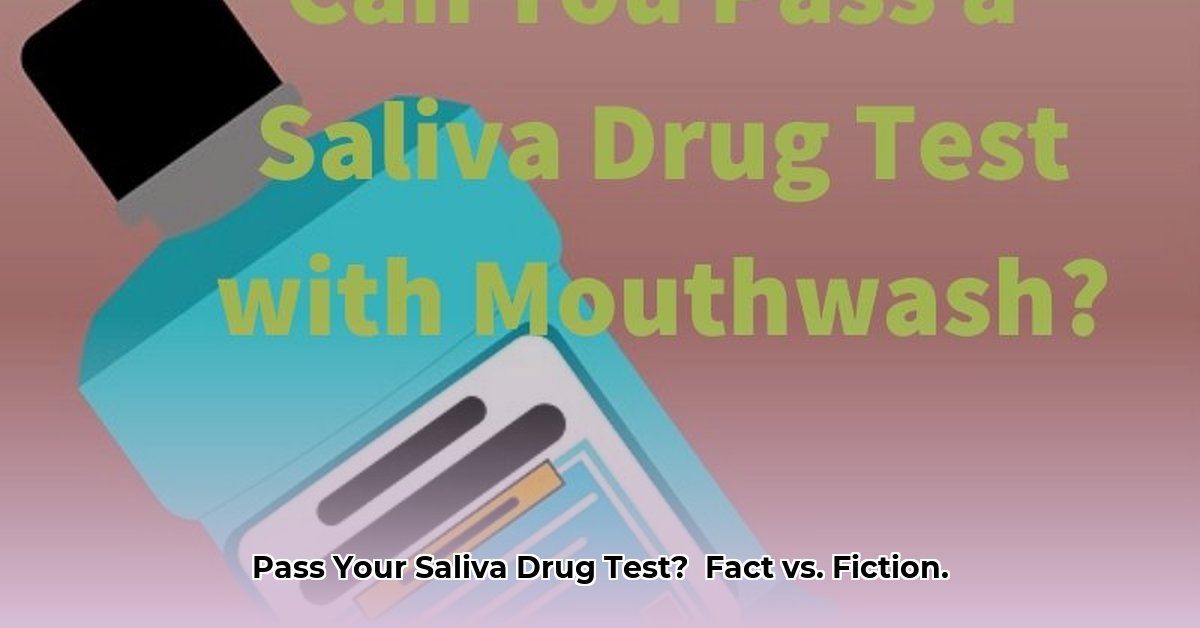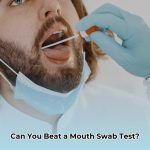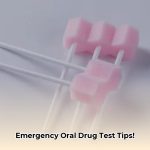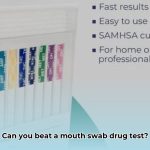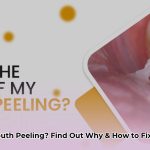A saliva drug test looming can be stressful. This guide provides clear, science-backed information about these tests, helping you understand the process and make informed decisions. We’ll explore how these tests work, what they detect, and realistic ways to approach the situation.
Understanding Saliva Drug Tests
Saliva drug tests, also known as mouth swab or oral fluid tests, offer a quick snapshot of recent drug use, typically within the past few days. Employers, probation officers, or sports organizations might use them to ensure compliance or fair play. Passing opens doors; failing has consequences.
How They Work
These tests detect traces of drugs or their metabolites (byproducts) in saliva. Think of it like checking recent internet history – it reveals recent activity, not months ago. The detection window is relatively short, usually a few days, but varies depending on the substance, amount used, individual metabolism, and test sensitivity. Ongoing research constantly refines our understanding of these factors.
Drug Detection Times: A General Guide
| Drug | Approximate Detection Window |
|---|---|
| Marijuana (THC) | Up to 72 hours (some studies suggest longer for chronic users) |
| Cocaine | 2-4 days |
| Opioids (e.g., Morphine, Codeine, Heroin) | Varies significantly; less than a day to several days, depending on the specific opioid. |
| Benzodiazepines (e.g., Xanax, Valium) | 4-12 hours |
| Amphetamines/Methamphetamines | 2-3 days |
| Methadone | 8-12 hours |
These are estimates; individual factors significantly influence detection times.
Methods: Fact vs. Fiction
Let’s dissect common strategies for passing saliva drug tests, separating evidence-based approaches from myths.
Abstinence: The Gold Standard
The only guaranteed method is abstinence. Allow sufficient time for your body to clear the drugs naturally. Refer to the detection window table above as a general guideline but be aware of individual variation.
Debunking Quick Fixes
- Mouthwash/Detox Products: These often promise unrealistic results. Labs can detect tampering attempts. They’re unreliable and might trigger false positives.
- Sour Candies/Home Remedies: Lack scientific backing and may contaminate samples, hindering accurate results.
- Brushing/Rinsing: Important for oral hygiene, but won’t eliminate drug metabolites already present in saliva.
Hydration and Diet: Limited Impact
While staying hydrated and eating a healthy diet supports overall health and may slightly assist the body’s natural detoxification processes, their impact on a saliva drug test is likely minimal. They are not reliable strategies for passing a test.
Consequences of Failing
The impact of a failed test varies depending on the context:
- Pre-Employment: Could lead to rescinded job offers, especially in safety-sensitive industries.
- Workplace: Consequences range from warnings and mandatory counseling to termination, depending on company policy and legal regulations.
- Probation/Parole: Serious violation, potentially leading to extended probation, increased monitoring, or even reincarceration.
- DOT Regulations (e.g., Truck Drivers, Pilots): Strict rules; failing can result in suspension or revocation of licenses and certifications.
What to Do If You Fail
Failing isn’t the end. Understand your rights; consider options like challenging results or requesting retests. If your job or legal status is at stake, consult a lawyer specializing in employment law or drug-related offenses.
This situation can also prompt self-reflection. If substance use is a challenge, seek professional help. Detox programs and treatment centers offer support and resources for recovery.
Frequently Asked Questions (FAQ)
Q: Can dry mouth affect test results?
A: Dry mouth itself probably won’t affect the presence of drug metabolites, although it might make sample collection slightly more difficult. Some medications can cause dry mouth, but this shouldn’t influence the drug test outcome directly. However, excessive fluid intake to combat dry mouth could marginally dilute saliva, but this effect is likely negligible.
Q: Does anxiety affect test results?
A: Anxiety itself doesn’t influence the presence of drugs in saliva. While stress can affect bodily functions, it won’t alter the drug metabolites detectable by the test.
Q: What about prescription medications?
A: Declare all prescription medications you’re taking before the test. This allows for accurate interpretation of results and avoids potential confusion with other substances.
Conclusion
Passing a saliva drug test requires understanding the science and making informed decisions. Abstinence remains the surest approach. Quick fixes are largely ineffective and may even be detrimental. If you fail, understand your rights and, if substance use is a concern, don’t hesitate to seek help. Recovery is possible.
Disclaimer: This information is for educational purposes only and does not constitute medical or legal advice. Consult with a qualified professional for personalized guidance.
- Top Rated Meditation Books to Deepen Your Practice - February 5, 2026
- Good Mindfulness Books For A Calmer, Happier Everyday Life - February 4, 2026
- Recommended Meditation Books for Beginners and Experienced Practitioners - February 3, 2026
